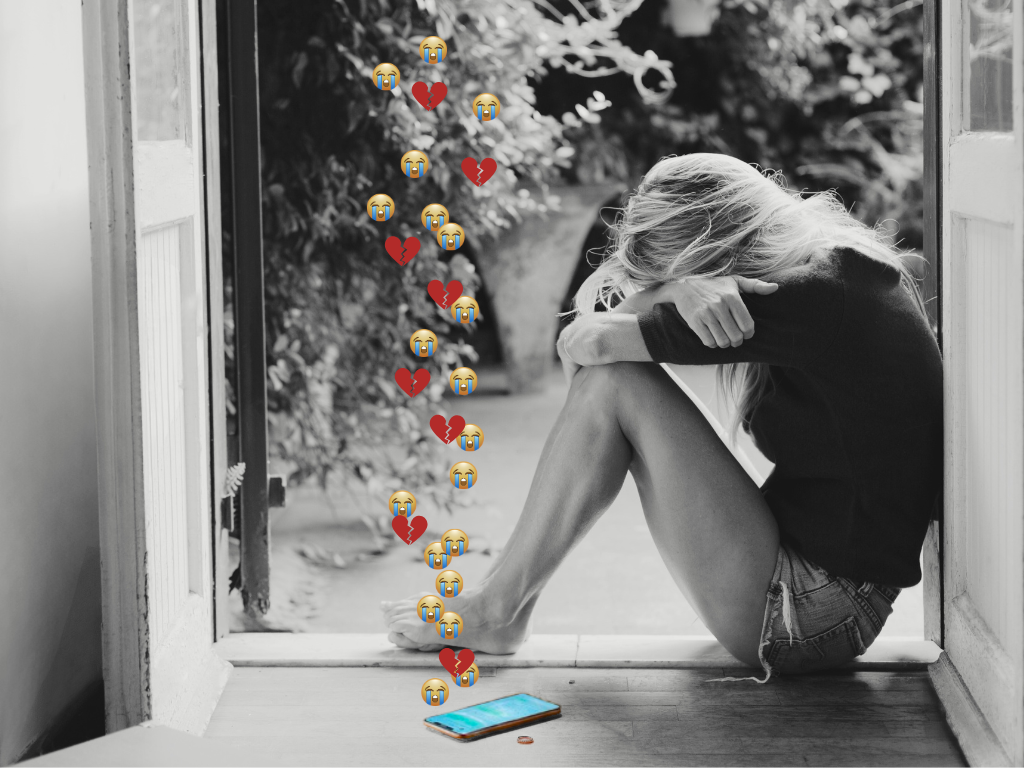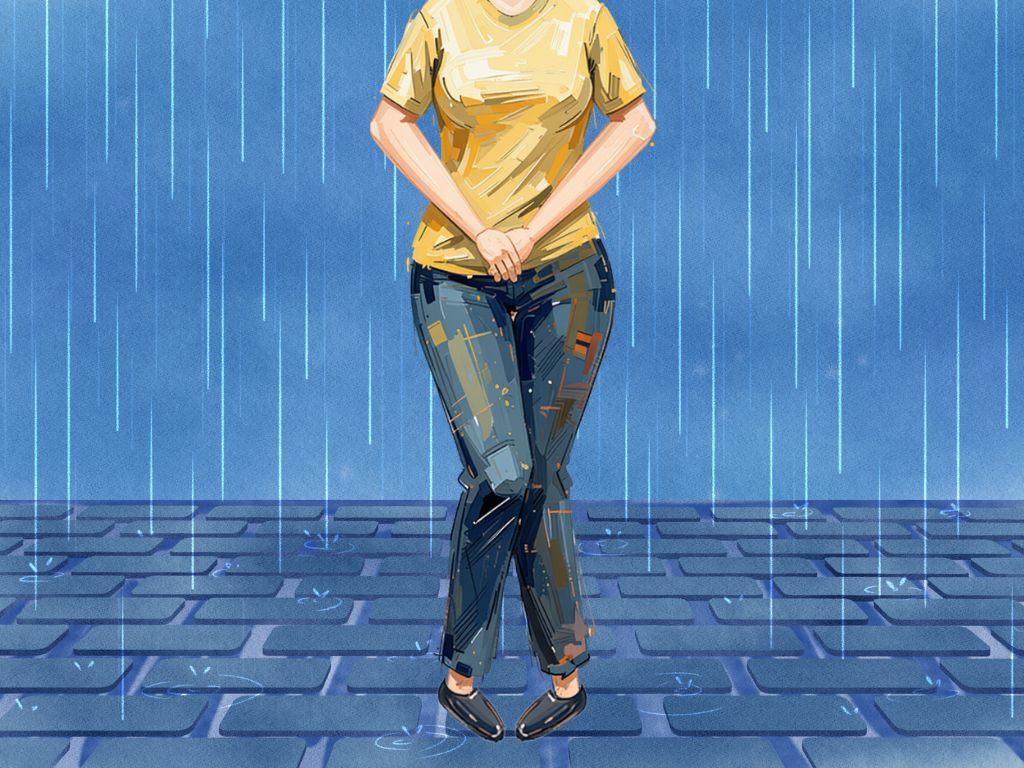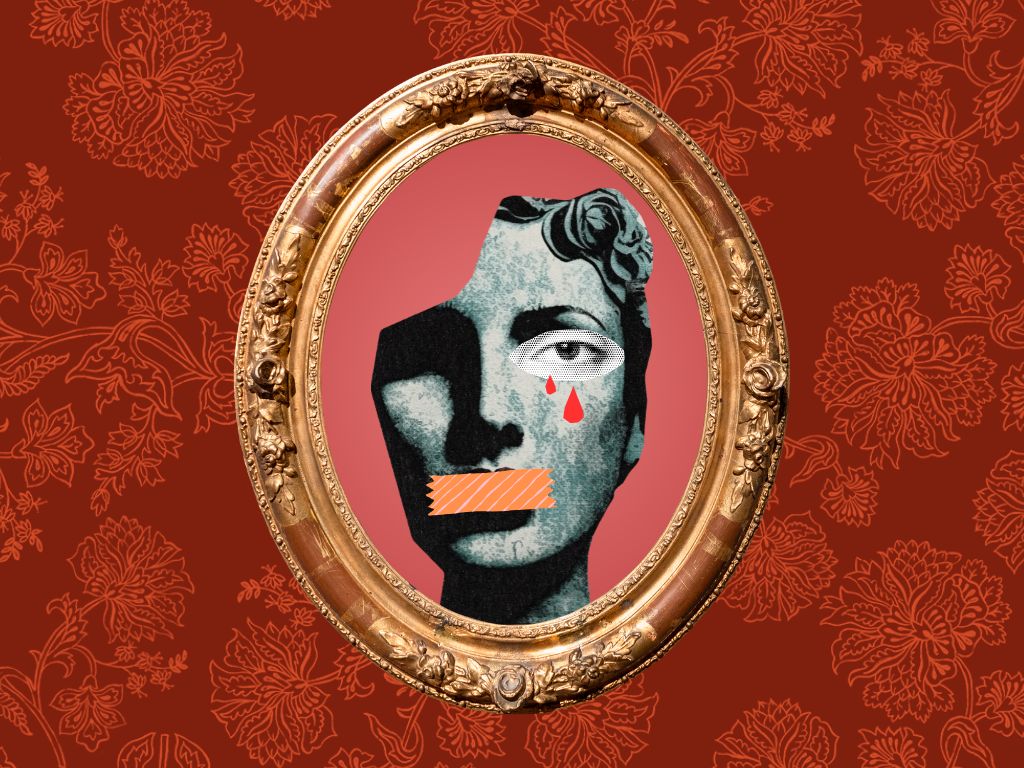
Mourning In the Digital Age
I became a widow nearly 12 years ago. Hours after my husband died, I posted a photo of him on social media. In lieu of answering the many heartfelt calls, texts, and emails my daughter and I received, that post was the easiest way for me to share the hardest thing I’ve ever experienced.
That initial Facebook post was more than just an announcement. It was my first act of public grief—an act that, in retrospect, broke an unspoken rule about how women are supposed to mourn: quietly, privately, without making anyone else uncomfortable. But social media has changed all of that. Today, with countless platforms, people seem to be sharing grief all the time.
But is it oversharing?
Maybe. Or perhaps it’s the cultural expectations around what “should be private” that makes grieving out loud so hard to sit with. We cringe or scroll past other people’s pain because it unsettles us. It forces us to see feelings that can’t be neatly contained. Is it fair to call it attention seeking?
Or are we bothered by simply bearing witness?
Grief Is Not a Secret to Keep
The social media landscape was different when Joel died. When I posted my loss, it was to let those closest to us know that he was gone. In time, I kept writing about my grief more publicly—in essays, posts, eventually my memoir. Telling my story became a form of connection. The catharsis went both ways: My words reached strangers, other widows, people navigating illness, sudden loss, and more.
“Grief is very lonely and what I know is that grief is best served when it’s shared and witnesses,” said Randi Pearlman Wolfson, who lost her father as a child over 50 years ago. She began posting on Facebook in 2017 and gave herself six months to get 50 followers. Her Instagram profile now has upwards of 23,000.
But when it comes to grief and social media, a recent Time magazine piece asks, who gets to mourn online?
And who gets to decide what’s “too much”?
How Grief Found a Voice Online
The answer is no one. And the fact that we even ask reveals how we’ve weaponized shame against women’s emotional expression.
Why are we so quick to police someone else’s pain? Is it more to do with our own fear of mortality or is it immaturity?
In a culture that rewards stoicism and punishes open wounds, grief is only acceptable when it’s nowhere to be seen.
Examples abound. When model Chrissy Teigen shared intimate photos from the hospital after losing her newborn son, many applauded her for breaking taboos around pregnancy loss, but just as many accused her of being performative. Kobe Bryant’s widow, Vanessa, was faulted for grieving “too openly” after losing both her husband and daughter. Even the Friends cast was maligned for waiting “too long” to post individually after Matthew Perry’s death, as if it was required to share their private loss with the masses.
Anyone who posts about grief online, especially when vulnerable, opens themselves up to criticism. We’re so quick to judge, no matter the loss being shared.
I’m no exception. I’ve caught myself wincing at tear-filled selfies, probably because I know how tedious it can be to find just the right photo to showcase any kind of emotion. So does a public display of tears really risk crossing over into performance? Or is it less about them and more about my/our collective inability to handle raw emotion?
The thing is, grief doesn’t care about comfort zones.
For centuries, it was woven into daily communal rituals: heavy mourning dress, processions, memorials—physical reminders that loss demanded to be witnessed, not hidden away.
Before the internet, the obituary section of the newspaper was how a community learned of a death—an announcement, an honoring, a public space for mourning that seemed to demand respect. Maybe grief-posting isn’t a radical departure, but a digital continuation.
What Happens When We Stop Hiding Our Pain
Do I ever wonder if I’ve revealed too much of my own mourning? Sometimes. Maybe that’s because society has conditioned us to keep our pain tucked away, our mourning contained, our tears hidden. But for those searching for connection, especially women, finding community online can be tremendously healing.
“Sharing what I was going through changed my relationship with social media because I realized how grief illiterate we are as a society,” said therapist Dr. Laura Berman, who became a grief advocate after losing her teenage son. She started the Grief Healing Collective, an online community for grievers: “Being there for each other helps with the helplessness, which makes grief easier to hold.”
It’s been more than a decade since my husband died, and I still write about him. It’s because Joel was here. He lived a life. He mattered. And as long as I keep sharing our story, he still does.
So maybe the next time you scroll past a grief post and feel that familiar cringe, ask yourself: Why does it make you uncomfortable? Is it because grief should be private—or because public mourning forces us to confront humanity where we least expect it?
What if we let ourselves witness that pain without judgement? What if, instead of scrolling past, writing it off as embarrassing, we met it with empathy, or even acknowledged something similar in our own experiences?
The instinct to look away isn’t about moral superiority, it’s about fear. And when we give in to that fear, we’re complicit in making grief lonelier than it already is.
So keep sharing. Keep grieving out loud. Because the challenge isn’t how much emotion we see, it’s whether we allow it to remind us why connection matters in a world so quick to look away.
Grief demands space.
Let’s make room.







9 Responses
Thank you for the honor of being included in your important and beautiful article, Melissa.
We lost our son when he was 3 years old
We grieve him to this day 36 years later. We do so with friends and loved ones who remember his sweet presence but have no need to share these deep feelings on a public platform with people who did not know him or really care about his existence
Love is precious and developed through shared experiences with a finite number of people. So calling and writing and being together for me is more profoundly meaningful than posting to a faceless general public
Wow.
Loss is part of the human condition meant to be seen, heard and felt.
Individuality will dictate when, where, why and how grief is expressed…to be dismissed is disrespectful to human nature.
Your article validates that loss is real. Connection heals.
Thank you for putting this in words 💜
So happy to add your motivation AND accomplishment to the mix! 💗
I’m so glad you found this resonant!
Having just lost my beloved husband of 52 years, and as a writer, I have the urge to express my grief in words on social media. But I hesitate to ‘impose’ my pain on others. Your article is leading me to reconsider my decision. I think I have something important to say about aging, life, loss, and searching for a new single-track groove.
Thanks!
Luanne, I’m so sorry for your loss. Fifty-two years is a lifetime of love to carry, and the ache of that absence is impossible to put neatly into words.
What you describe — that tug between wanting to share and not wanting to burden — is something so many feel but rarely say out loud. I’m glad Melissa’s piece nudged you toward speaking. When grief is expressed honestly, it doesn’t impose; it connects.
If you feel you have something to say about aging, loss, and finding your way forward, I hope you’ll give yourself permission to say it. Keep in touch and let us know how you are doing. —susan
I’m not a writer but I did lose my husband 2 years ago in a motorcycle accident. He was 39. We were together 20 years. Woke up again today missing him like it just happened. Please don’t hesitate to express your grief in words. Do it for the people like me that don’t know how to.
Rachel, I’m so sorry for your loss. Twenty years together is a lifetime of love to hold. The way you describe waking up still missing him is so moving—and exactly why sharing grief in words matters. Thank you for reminding us that those stories can be a lifeline for others who can’t always find the words. —susan